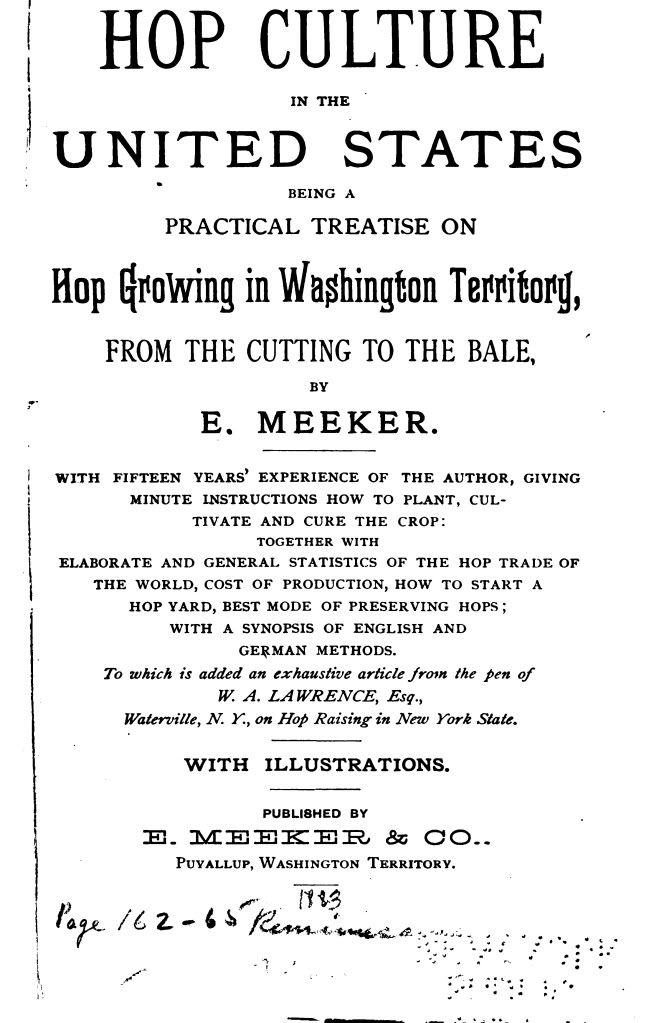
Hops have one use: making beer. Not surprisingly, churches that were active in the movement advocating Prohibition celebrated the insect infestation that destroyed hops in western Washington in the late nineteenth century. A letter Ezra Meeker sent to the Seattle Post-Intelligencer in September, 1895 reveals cultural and ideological faultlines. Meeker reprinted the letter in Ventures and Adventures of Ezra Meeker (1909).
To the Editor:Meeker points out that his hops failed nevertheless, and that he did not get back his $400.
In this morning's reprt of the Methodist conference I notice under the heading "A Curse on the Hop Crop," that Preacher Hanson, of Puyallup, reported he had some good news from that great hop country--the hop crop, the main support of the people was a failure; the crop had been cursed by God. Whereupon Bishop Bowman said "Good" and from all over the room voices could be heard giving utterance to the fervent ejaculation, "Thank God."
For the edification of the reverend fathers and fervent brethren I wish to publish to them and to the world that I have beat God, for I have 500 acres of hops at Puyallup and Kent that are free from lice, the "curse of God," and that I believe it was the work of an emulsion of whale oil soap and quassie sprayed on the vines that thwarted God's purpose to "curse" me and others who exterminated the lice.
One is almost ready to ask if this is indeed the nineteenth century of enlightenment, to hear such utterances gravely made by men supposed to be expounders of that great religion of love as promulgated by the Great Teacher.
I want to recall to the memory of the Rev. Mr. Hanson that the church in which he has been preaching for a year past was built in great part by money contributed from gains of this business "Cursed by God." For myself I can inform him that, as a citizen of Puyallup, I contributed $400 to buy the ground upon which that edifice is built, every cent of which came from this same hop business "cursed by God." I would "thank God" if they would return the money and thus ease their guilty consciences.
Ezra Meeker
(Ventures and Adventures, 288-289)






No comments:
Post a Comment